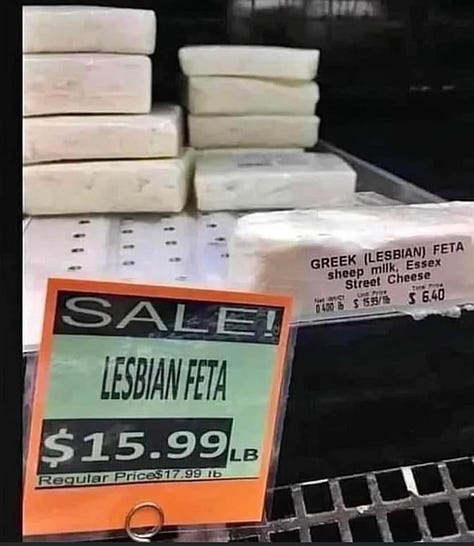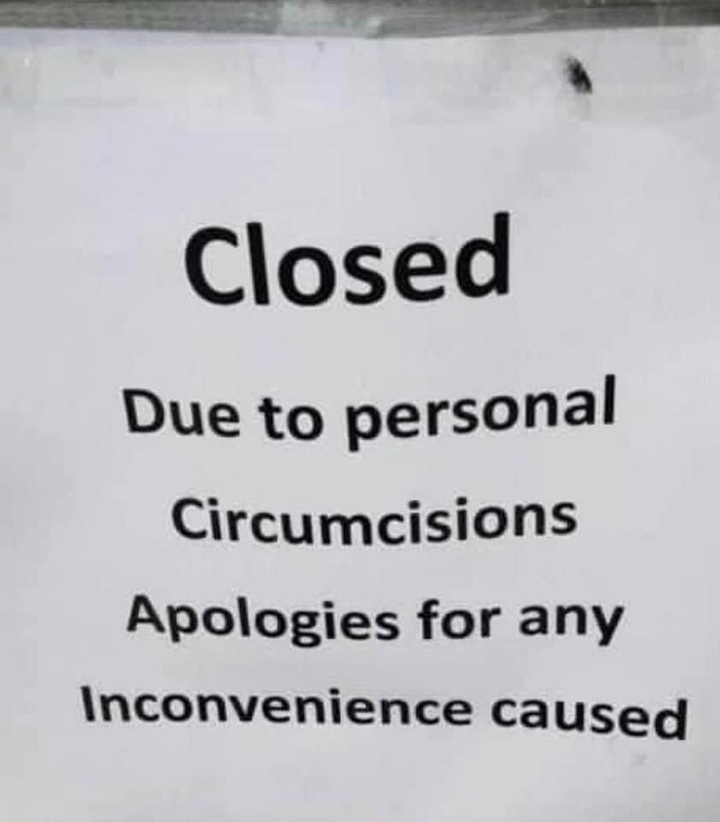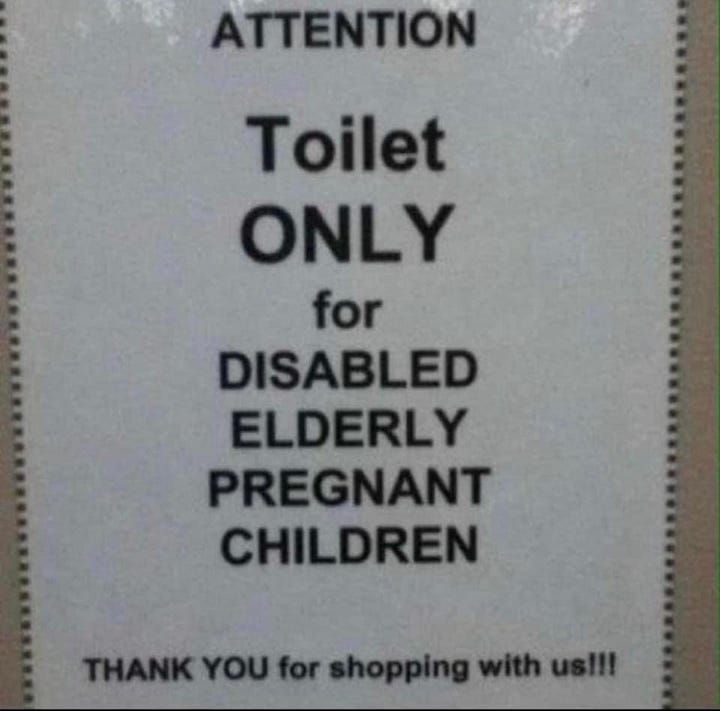The Weight Of The Word
On Freedom, Gratitude & Comma F*ckers
I’m a songwriter. I love words. I like rolling them around in my mind and tasting them on my lips. The right word at the right time is pure satisfaction. A word misused, poorly chosen or out of place irritates me.
I’m one of those pedantic people that notices words spelled incorrectly or apostrophes misplaced. However, I would never take it upon myself to point these meaningless small errors out unless I’ve been asked to edit a document, as those internet grammar police always strike me as so painfully elitist, insufferably smug and generally completely lacking in social graces and empathy as they point out grammatical mistakes in someone’s impassioned eulogy or tale of woe. I was thrilled to find that in Finland these people are called ‘comma f*ckers’, in Switzerland they are known as ‘little dot sh*tters’, they are ’whittlers of woodchips’ in Norway, and ‘sodomizers of flies’ en France. Such perfectly expressed terminology. Sometimes it’s the little mistakes that elevate a phrase or sentence into art.





Some words change their meaning over time, as they are misused or overused or become identified with something else entirely. There are words I miss, and I would like them back.
Exhibit One: Back when Kris Kristofferson wrote the lyric ‘Freedom’s just another word for nothing left to lose’ in Me & Bobby McGee, the very mention of it was a kind of call to arms, to a philosophical state of mind. ‘Freedom’ signified choice, lack of shackles, wildness, boldness, living autonomously, a beautiful, fearless, romantic kind of word. Freedom Riders were brave Black activists who spent months riding busses to challenge the racially segregated convention in the South and were beaten, terrorised and arrested for their efforts, in an effort to bring people of all races together peacefully and to ‘change America’ as future congressman John Lewis then described it. The word ‘freedom’ has been politicised in a different direction and co-opted into having so many other self serving connotations these days. Freedom just ain’t freedom anymore.
My inbuilt personal philosophy has always been one of gratitude, to make a point of recognising how lucky I am for my personal freedoms and safety and to be aware of and thankful for everything that is good in my life or in the world around me. It feels to me now that the rampant overuse of the word has devalued it. It feels shallow now and makes me feel like a cliched caricature of an annoying yoga teacher when I use it. I don’t mean to offend yoga teachers, I love them and am in fact deeply grateful for them. The word awesome similarly lost its power as it became so commonly and comically overused in the Western world that you could say it in response to getting directions to the toilet.
I read a genius tweet last week that stated ‘For every person that listens to a piece of music, that takes away a little bit of that music’s power. Songs that have 90 million listeners are very weak because of this. Try it. You will not be moved by these weak songs. Songs with 1 or 2 listeners are basically at full potency’ (@StrategicTapeReserve). Readers should be aware that this means most of my songs are extremely potent and they should take great care when listening.
Kotodama (言霊) is a Japanese word that expresses the idea that words have a life of their own and that there is spirit in words - in Japanese culture, spirits are everywhere - and in fact there is no true word for a singular God, much to the frustration of followers of Christian religions trying to translate their thoughts into Japanese.
However there are many wonderful singular words to convey a complex array of feelings and circumstances in Japanese that are untranslatable into English. Kanashibari ( 金縛り) means to be so sad you can’t move, that spirits are holding you down. This is a common concept.
Ichigoichie (一期一会) means one meeting one opportunity, a kind of reminder to seize the day, to not take anything for granted as every event is to be treasured and will not be repeated. This word seems to hold a poetic philosophy of gratitude within it. It recognises and appreciates the inherent beauty in the everyday.
My friend Lady Cath recently told me about the Finnish word Kalsarikännit that roughly translates as ‘underpants drunk’ - more specifically that feeling when you can’t be bothered getting into clothes decent enough to leave the house but you really feel like getting stuck into it so you just stay home and get drunk alone in your undies - or maybe with a good friend or two. There are even Finnish emojis for this.


The Finns also have an emoji for Black Gold, a very popular and beloved liquorice spiced with a hazardous substance called Ammonium Chloride - and in fact are the first country to develop their own set of 56 country specific emojis - well worth checking out.
Australian slang can be equally specific and inscrutable. I nearly choked on the wine I was sipping when I discovered that a bachelor’s handbag refers to a cooked supermarket chicken (or chook as its more commonly known here in the land of Oz), on account of it being the go-to dinner choice for single Aussie men. The Aussie salute is the wave that you do to get rid of flies in your face. When we’re chockablock it means we’ve eaten too much and can’t fit any more in. When we’re buggered it means we are too exhausted to do anything. And when someone says ‘G’day c*nt’ to you it generally means they really like you and you’ve entered the zone where you can grunt to each other in an incomprehensible shorthand, phrases such as ‘no wuckas’ which is short for ‘no f*cking worries’ which is a really nice, easygoing way of saying ‘you’re welcome’ or ‘happy to help’. My band and I entered this zone long ago and lovingly refer to each as c*nts all the time. We might also refer to various characters in our orbit as root rats, bludgers, f*ckwits, wankers or total knobs. One of my favourite Australian sayings is ‘Onya’, short for ‘good onya’ which translates as ‘well done’ or ‘good for you’. Our everyday slang doesn’t have the beauty of many other languages but it certainly has its own charms.
Even the French have fairly untranslatable turns of phrase such as chier dans la colle which means to sh*t in the glue, to express that someone has gone too far, acted badly or made a terrible mistake. It’s nothing to write home about would be Cela (ça) ne casse pas trois pattes à un canard which literally means This won’t break three legs of a duck. You can tenir la jambe which means to bore someone to death by ramming a particularly uninteresting topic down their throat without pausing for breath. To get all worked up about something would be referred to as getting your spleen cooked into a stock. When someone has lost the plot or is really out of it, the French term is Être aux fraises or to go picking strawberries. I really like that one. I also used to love hearing my French friend Delphine say ‘I’m cooked like an egg’ which is basically the same as ‘I’m buggered’.
The mysterious and entertaining world of words and phrases is a place I could endlessly explore but I’ve been writing for hours, my brain is fried, my eyes are red and c’est le bordel dans ma tête or my mind is a mess. I also need feeding and watering, and hope to soon experience what the Italians call abbiocco or ‘the sleepiness that overtakes you after a big meal’.
Leave me your favourite words, your untranslatable sayings, your slangiest slang in the comments, and ci vediamo presto friends (Italian for ‘we’ll meet each other again’). x
Update: A very kind comma f*cker just alerted me that I have, in fact, misspelled a word in this missive. If you can find it, you win my respect and admiration.




We have challenges in New Zealand these days as to what is correct spelling, because we were once part of the British Empire and out spelling reflected that, but now English English and American English are acceptable.
We share many sayings with our cobbers from across the ditch, in the vast wasteland across from Aotearoa which many factions are lobbying to change the name of our country to, meaning land of the long white cloud by our indigenous Maori.
We share many sayings with the Aussies. I spent 7 years traveling to Japan on business about 4 times a year, and my Japanese friends loved learning our colloqualisms.
An Aussie one I like for someone who is scatterbrained says "He has a roo loose in the top paddock." One we share for the same comment, is "He is a sandwhich short of a picnic."
Common sayings here are "Chur Bro", which can mean anything from thanks mate, to that's cool.
You're a manus, means you're a dick.
Nek minit is common. Like, I was standing on the side of the road and nek minit a cop comes along.
We use quite a few Maori words intermingled with English, like whanau, which means extended family, and mahi which means work.
I love that you mentioned being buggered. My late father gave me a number of hidings for saying bugger, or singing a song I appear to have made up when I was 4 or 5, which went something like bugger, bugger, bullshit. For some reason he had to explain to me exactly what bugger meant. I also got told off for repeating a common saying, I can't be blowed, meaning I can't be bothered, which refers to fly blown, or eggs that flies lay on the backs of sheep, where they may have cut themselves on a barbed wire fence.
Anyway, I could go on for ages mate (we call everyone mate, male or female), but this is your post, which is a shit hot topic btw.
Ha! I used to have a book of French slang, I hope I can find it. Thanks for this timely reminder. The bachelor’s handbag is a newie to me too. Wonderful hot mess of words, Lo.